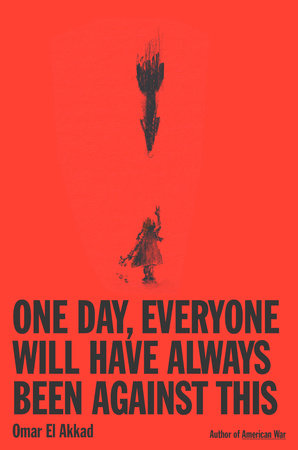More on this book
Community
Kindle Notes & Highlights
Read between
July 26 - August 15, 2025
In a couple of decades, the Russians would pass the baton of villainy to people who look like me, though in our case there was no real empire to speak of, and so we were mostly small-batch insidious, our specialty less tank-and-jet and more suicide-bomb-level violence.
He is forced in that moment to confront the reality that so much of the American self-image demands a narrative in which his country plays the role of the rebel, the resistance, when at the same time every shred of contemporary evidence around him leads to the conclusion that, by scope and scale and purpose of violence, this country is clearly the empire.
I’ve seen the Punisher decal on the bumper, the stylized American flag denoting the thin blue line: I’m an outlaw; also, anyone who disobeys the cops deserves to be killed
Anyone who buys into both the narrative of American rebelliousness and the reality of American authority understands that both have been created to serve them.
First, there is the basic relief of watching some official entity—any entity—do something.
there is a sense that one must be going mad: to see so plainly the destruction, the murdered children filmed and presented for the world to look upon and then to hear the leaders of virtually every Western nation contend that this is not happening, that whatever is happening is good and righteous and should continue and that in fact the well-being of the Palestinian people demands this continue—it’s enough to feel like you’re losing your mind.
from the safety of the present, everyone now claims they always opposed.
For the gaggle of authoritarians who run most of the Arab world, there is nothing to be gained from meaningfully assisting a population so well versed in resisting oppression, lest that capacity for resistance prove contagious.
The reality is that an ally of the West is killing civilians by the tens of thousands and it would be politically inconvenient to call this wrong now when for months, years, decades it has been deemed perfectly fine.
It’s no use, in the end, to scream again and again at the cold, cocooned center of power: I need you, just this once, to be the thing you pretend to be.
If the people well served by a system that condones such butchery ever truly believed the same butchery could one day be inflicted on them, they’d tear the system down tomorrow.
I start to see this more often, as the body count climbs—this malleability of opinion.
This is the world we’ve created, a world in which one privileged sliver consumes, insatiable, and the best everyone else can hope for is to not be consumed.
It is not without reason that the most powerful nations on earth won’t intervene to stop a genocide but will happily bomb one of the poorest countries on the planet to keep a shipping lane open.
How many would want to believe, as so much of the culture here has always strained to believe, that they side with the underdog, the downtrodden who refuses to give up, the rebel in the face of empire?
I had copied the text, almost word for word, from Barack Obama’s 2009 speech in Cairo, the one titled “A New Beginning.”
Many people’s governments are cruel, many people’s governments are indifferent. It’s this relentless parachuting of virtue. It’s these speeches and statements of eloquently stated concern for human rights and freedom and the demand that those who abuse human rights or withhold freedom be held to account.
What good are words, severed from anything real?
all the people in that room, so many of them either involved in or so vocally supportive of literature, who keep their heads down, say nothing, wait for it all to just be done.
A room full of storytellers, and so many of them suddenly finding common cause in silence.
manuscript. Or at least something that sounds good in a craft talk. In truth, I have no idea what the work really is, and yet I find myself returning to the question time and again, as I watch some of the quietest, most demure, most inward-looking writers I know—writers I always thought of as obsessed exclusively with the work—act as the most vocal opponents of genocide.
What does the killing of hundreds of Palestinian novelists, poets, and journalists mean for the future of literature?
Some of the least established writers I know, the ones who have to work all manner of side jobs just to make ends meet, are actively putting their literary careers at risk by calling for an end to the wholesale murder of a people. Meanwhile, so many of the most established writers are either totally silent or engaged in the tritest finger-wagging about just how terrible it would be for the art if we get too shrill about this sort of thing.


